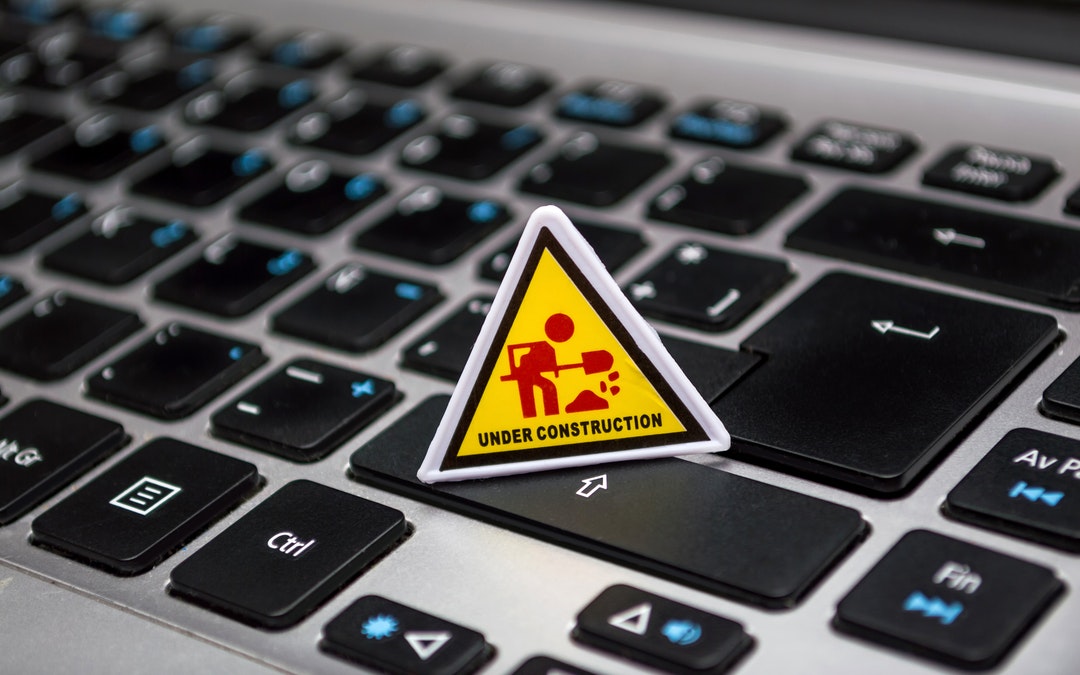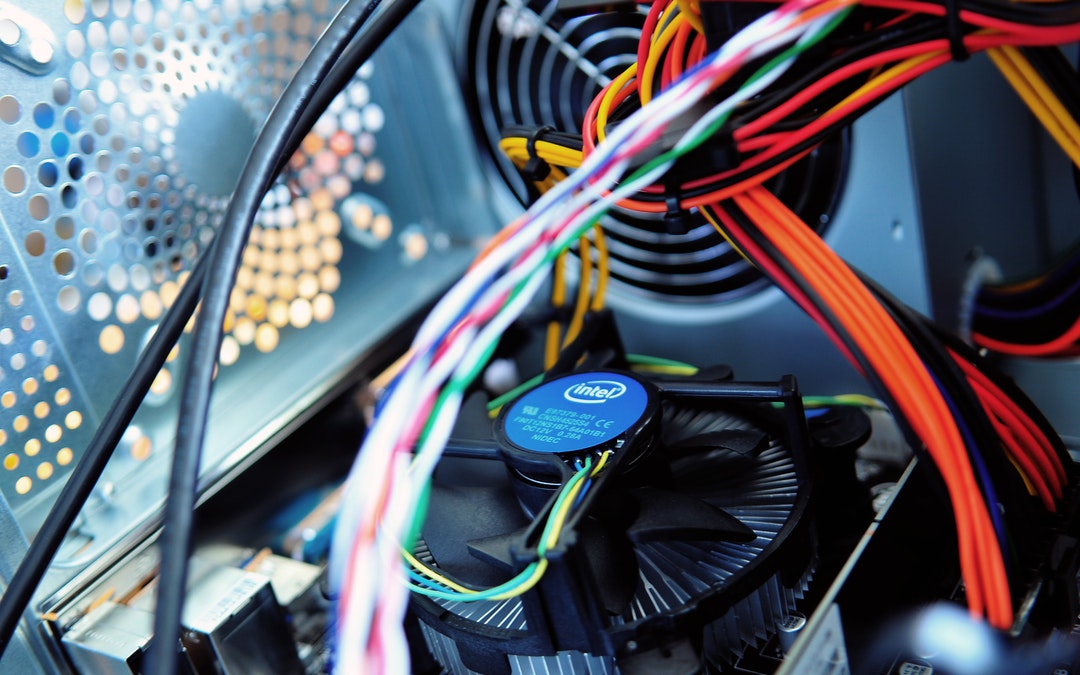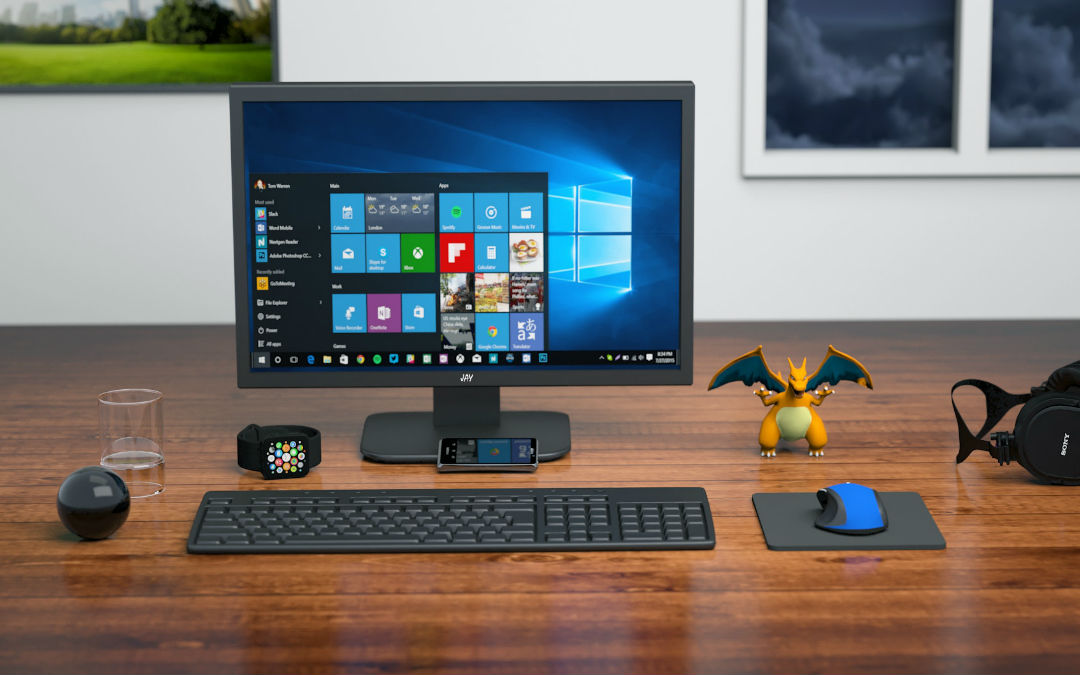
by Michael | Sep 27, 2018 | Our Services, Tech Tips
One of the first ever articles I read on the ‘world wide web’ was about a VCR repair guy who found a mouldy jam sandwich when he opened up a faulty VCR. We’ve never come across anything quite as peculiar, unfortunately. But, there aren’t many computer faults we haven’t encountered over the decades we’ve been in the PC Repairs business. Computer faults can vary massively, from a relatively simple fix to something more substantial and time-consuming. We’ve noticed they do all have one thing in common, though: They’re an unwanted, irritating annoyance for each and every one of our customers who walk through our door. For the times when technology just doesn’t want to play ball, there’s Teign Geeks. Top 6 Common Computer Faults We deal with many common computer faults on a daily basis, so it’s difficult to dwindle it down to just six. But, the faults highlighted below are the ones we see time-and-time again. Here goes: 1) Cracked or Smashed Laptop Screens Being sat on when they’re disguised under a cushion on the couch. Fallen off a table. Dropped due to a momentary case of butter fingers. Especially these days, with their streamlined thin casings, laptop screens can be cracked or completely smashed quite easily. Bad news for you, if you’re a laptop owner. Good news for us, as a PC Repairs specialist. But on the bright side, Teign Geeks can fix the screen on the vast majority of laptop makes and models – from as little as £39. 2) No Display or ‘Garbled’ Display Following on from the above, the screen on your laptop or...

by Michael | Sep 6, 2018 | Online Safety, Our Services, Tech Tips
There are none more famous than the ‘Millenium Bug’ (that massive thing that was meant to break the entire world, but didn’t). We’re talking about the dreaded computer virus. You’ll know roughly what one is. At the very least you’ll know it’s not a good thing. But, how are you meant to actually tell if your PC has one and is in desperate need of Virus Removal? If you’ve got Antivirus Software installed, you should get a notification to warn you of a potential threat to your PC, if you’ve set up a recurring virus check. ‘Should’. Even if you have to run a virus check manually, your Antivirus Software should (that word again!) pick up whether or not your computer has been infected and needs Virus Removal. Either way, whether you do have Antivirus Software installed or not, you should always be vigilant and aim to spot signs your computer has a virus. Warning Signs to Watch Out For Below, we’ll highlight some of the more common signs and symptoms you’ll notice if your PC is infected with a computer virus. Keep in mind, though, that the cyber criminals who create these computer viruses are cunning. They’re becoming increasingly crafty and making it much harder for viruses to detect. 1) Your PC is S-L-O-W-W-W A symptom you’ll probably be able to spot pretty easily. If your once-lightening-fast laptop or PC is now taking an age to complete even the simplest of tasks, there’s a chance it has a virus. This symptom isn’t unique to PC’s having a virus. It could well be that your PC, maybe due to...

by Michael | Aug 29, 2018 | Our Services, Tech Tips
It’s a stressful time. No, not trying to get the kids or grandkids to bed after an ice cream-induced sugar rush – your PC or Laptop giving you grief. Whilst your instant reaction might be utter dread as you cringe at the potential cost of repair, there’s a good chance that all it needs is a PC MOT. “But, my PC isn’t a car?”, we hear you ask rhetorically. And quite right you are. Well, it’s kind of similar to the MOT your car has to pass every year. It just involves a lot less oil, and some input from a bonafide computer geek. That doesn’t really give you much to go on. So let’s delve a little bit deeper into what a PC MOT is, what it involves, and why your machine might need one. PC MOTs Explained In a nutshell, a PC MOT Service is a systematic procedure that is aimed at optimising your PC’s overall performance. Because, over time, most PCs accumulate things like junk files and develop small-but-unresolved problems which can manifest themselves in a variety of different ways. Fortunately, a PC MOT can usually reverse any adverse effects caused by years of usage and no proper maintenance, clean-ups or optimisation. Take Teign Geeks’ PC MOT procedure, for example. It generally involves: A Virus Check Service & Programs Optimisation Removal of Any Junk An Integrity Check of RAM and Hard Drive System Files Check Registry Analysis & Optimisation Once completed, your PC, Laptop or MAC will be running just like the day you first got it out of the box. Better still, it costs as...

by Michael | Aug 8, 2018 | Our Services, Tech Tips
A No Fix No Fee guarantee is one of the most – if not the most – important factors you’ll need to consider when choosing a computer repair specialist. Teign Geeks has had a No Fix No Fee PC repairs policy for years… and so should any other reputable computer repair company. Yeah, you did read that right. If we can’t figure out what’s wrong with your PC, Laptop or Mac, we won’t charge you a single penny for trying to diagnose the problem for you. Imagine that happened in all walks of life, aye. You’d be much better off financially, no doubt. Can you imagine taking your car to a mechanic because it’s not running right, them spending an age stripping it down to its bare nuts and bolts, then not charging you a penny because they can’t figure out the fault? We’ve proudly been promoting our No Fix No Fee PC repairs policy for years. It’s a key differentiator between Teign Geeks and a lot of our regional competitors. Some say they do it. But very few actually walk the walk like we do. What are No Fix No Fee PC Repairs? When you or any other customer brings a computer into Teign Geeks, we’re pretty confident there are few faults we can’t fix. We aren’t perfect, though. From time-to-time, we’ll be faced with a fault that even our rigorous head-scratching won’t fix. Or, similarly, after spending some time diagnosing the problem(s) with your PC, we might come to the conclusion that it’s not economical to repair. For example, the cost of the repair(s) would outweigh the...

by Michael | Jul 27, 2018 | Tech Tips
We’ve come a long way since Windows 1.0 was released way back in 1985. There’ve been no fewer than 25 different versions released by Bill Gates and his buddies since then. But, when should you update your Operating System (OS)? How are you even meant to know if it even needs updating? Even now, we still get laptops and desktops brought into us that are running on Windows 7, Visa and even XP. That’s right: some machines are still running on an OS that’s 17 years old. We don’t expect everyone to know what the latest version of their OS is, though. Some people might not even be familiar with what an ‘operating system’ even is, or which OS is the best. That’s what we’re here for! Types of Operating System An Operating System is software that helps manage computer hardware and software, as well as providing services for computer programs. The three most common types of computer OS, at least one of which you’ll be very familiar with, are: Windows OS X Linux Chrome OS The good thing for you is that you don’t actually generally need to worry about choosing a particular OS to have installed on your PC or laptop. These days, when you first buy your machine, it’ll come with a pre-installed OS. Apple products – such as the Mac and Macbook – use OS X. Computers manufactured by the likes of Dell and HP will generally have the latest version of Windows installed (Windows 10). Although not exclusively, Linux is more commonly used by fully-fledged nerds: computer programmers and software developers. Chrome OS is...






Recent Comments